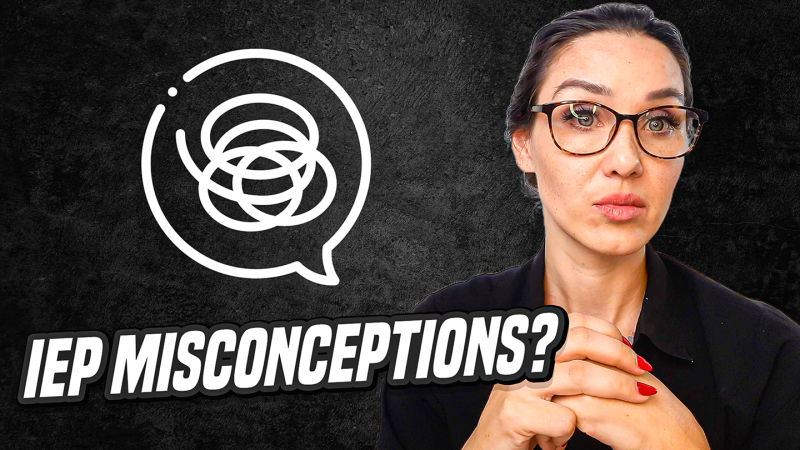
If Your Child is Struggling in school start a free trial of the Learning Success System
IEPs, or Individualized Education Programs, are powerful tools used in the U.S. public school system, designed to uplift students with special educational needs. Yet, numerous misconceptions surround them, often leading to misunderstandings among parents, teachers, and administrators.
IEP Misconceptions Series: Key Takeaways
1. What's an IEP? IEPs, or Individualized Education Programs, are tools in the American public school system supporting students with special educational needs.
2. Misconception #1: IEPs are only for students with intellectual disabilities. Fact: IEPs cater to a broad spectrum of students facing learning challenges, from dyslexia and ADHD to autism and physical disabilities.
3. Misconception #2: IEPs focus only on academics. Fact: Beyond academics, IEPs also address functional, social, and emotional needs, offering additional supports like speech therapy and social skills lessons.
4. Misconception #3: A student doing well academically doesn't need an IEP.
Fact: IEPs aren't just about academic performance. They help students with various needs, like organization for ADHD students or mobility support for physically disabled students.
5. Misconception #4: IEPs are one-off events.
Fact: IEPs are living plans. They're reviewed yearly and updated based on the student's evolving needs.
6. Misconception #5: Teachers can choose whether to follow the IEP.
Fact: Teachers are legally bound to adhere to the IEP. Not doing so could result in legal action against the school.
8. Misconception #7: All schools offer identical IEP services.
Fact: Schools vary in resources, and while all provide a free appropriate public education, the specifics might differ.
9. Misconception #8: Private schools must offer IEPs.
Fact: Private schools aren't mandated by federal law to provide IEPs, although some do voluntarily.
10. Misconception #9: IEPs stigmatize students.
Fact: IEPs are confidential and focus on tailored support. Strong privacy laws protect the student's information.
11. Misconception #10: Once an IEP is set, the school takes over everything.
Fact: While schools implement the IEP, ongoing parental involvement remains crucial.
Key Takeaways:
Are you looking to foster a growth-oriented mindset in your child and build their resilience and grit?
Look no further than the Learning Success System, a do-at-home educational therapy program that addresses cognitive micro-skills and helps with focus, reading, math, confidence, and more. And now, for a limited time only, a free trial is available for those interested in unlocking their child's full potential. Don't miss this opportunity to invest in your child's future!
Learn everything you need to know about IEP's in this new documentary.
Get the full documentary here
Or watch on Amazon Prime Video









